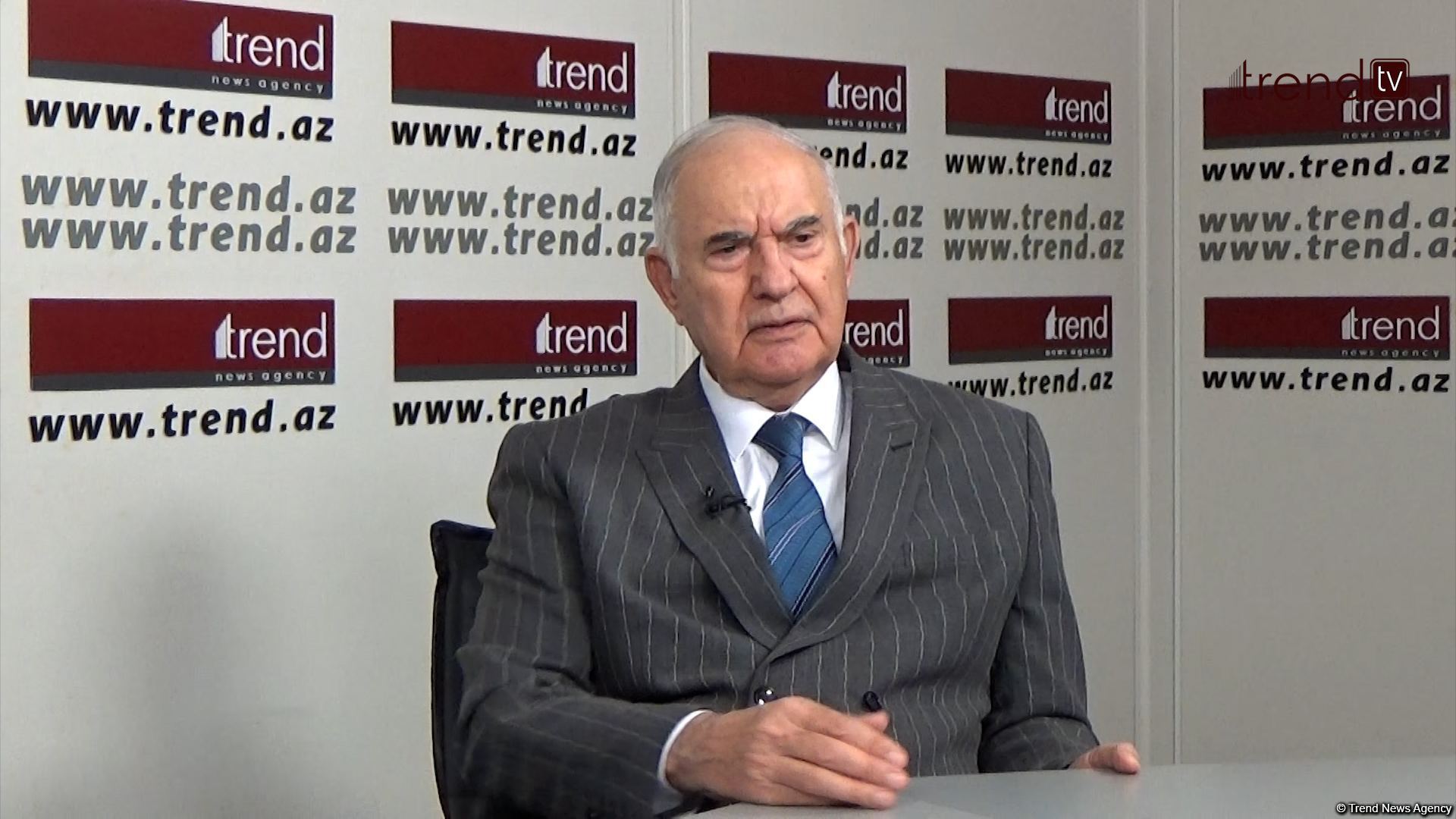BAKU, Azerbaijan, April 29. Azerbaijan and Iran share a long and intricate history of relations, united not just by a common border but also by intertwined religious, cultural, political, and economic ties. Despite encountering occasional tensions and challenges, both countries have remained steadfast in their commitment to dialogue and deepening cooperation, Azerbaijani political analyst Azer Garayev told Trend.
In an interview, Garayev pointed out that the recent visit by Iran’s newly elected President, Masoud Pezeshkian, to Azerbaijan really drives home the point about their lasting connection, shining a light on the strength and steadfastness of their bilateral relationship.
"The political relationship between Azerbaijan and Iran is complex and multifaceted. While the two countries share common positions on numerous regional issues, their ties have at times been marked by tensions. Border incidents, the influence of external actors, and broader geopolitical dynamics in the region have added layers of complexity to their relations. Despite these challenges, both nations remain committed to the principle of mutual respect, working to normalize their ties and explore new areas of cooperation. In this context, Iranian President Masoud Pezeshkian's visit to Baku stands as a significant event. During his meeting with President Ilham Aliyev, both leaders underscored the importance of strengthening cooperation across political, economic, and other domains," he said.
The political analyst highlighted significant opportunities for economic cooperation between Azerbaijan and Iran.
"In recent years, trade turnover between the two countries has seen substantial growth. By the end of 2024, trade reached over $640 million, and this figure is expected to rise further in the future. Discussions also touched on the involvement of Iranian companies in the restoration and reconstruction efforts in Azerbaijan's liberated territories. President Ilham Aliyev extended an invitation to Iranian companies to participate in infrastructure projects in Azerbaijan. Additionally, both sides aim to enhance industrial cooperation and establish joint production facilities. This is crucial not only for boosting local production but also for creating jobs," he added.
Garayev emphasized that Azerbaijan and Iran's collaboration in the transport sector plays a crucial role in advancing logistics and trade routes across the region.
"Notably, the projects under the North-South International Transport Corridor enhance the economic potential not only of the two countries but also of the entire region. Modernizing the border crossing points in Astara, expanding railway links, and renewing freight infrastructure are tangible outcomes of this cooperation. Azerbaijan strengthens its position as a transit hub along the corridor, while Iran gains expanded access to the European and Russian markets, as well as enhanced relations with India, Pakistan, and other South Asian countries. The Astara-Astara and Astara-Rasht railway projects are particularly significant, as they allow Azerbaijan to serve as a key connector between Iran and Russia.
Azerbaijan is also able to facilitate transportation to the Persian Gulf through Iran. Additionally, a significant project is underway to establish a seamless connection between mainland Azerbaijan and Nakhchivan via Iran. This initiative will ensure uninterrupted communication between the two regions. Moreover, the road and bridge projects surrounding the Khudaferin and Giz Galası hydropower stations hold strategic importance for cross-border cooperation. These bridges not only enhance physical connectivity but also foster the growth of economic and humanitarian ties between the countries," he noted.
Garayev added that Azerbaijan and Iran are making significant strides in the energy sector as well.
"Specifically, practical efforts are underway to manage hydroelectric power stations, facilitate mutual electricity exchanges, and synchronize energy infrastructures. The Khudaferin and Giz Galası hydroelectric plants serve shared interests in both water resource management and energy production. Looking ahead, there is immense potential for projects that could establish energy bridges between the two nations, connect their electricity networks, and enable joint energy exports to third countries.
These initiatives are of strategic importance to the region, particularly in terms of energy security, while also strengthening technical and financial cooperation between Azerbaijan and Iran. Given Iran's substantial gas reserves and Azerbaijan's advanced energy infrastructure, there is a solid foundation for collaborative projects in gas exports, liquefied gas terminals, and energy storage technologies for both countries," he said.
The expert highlighted that the visit of Iranian President Masoud Pezeshkian to Baku marks a new chapter in Azerbaijani-Iranian relations.
"The agreements reached during the visit will significantly advance political, economic, and cultural cooperation between the two nations. The strengthening of ties between Azerbaijan and Iran is crucial not only for reinforcing bilateral relations but also for enhancing regional stability and prosperity. Strategic areas of collaboration, particularly in transport and energy, are foundational pillars that will shape the region's future. Both Azerbaijan and Iran now have new opportunities to deepen their relationship, rooted in mutual interests, respect for sovereignty, and good neighborliness. Leveraging these opportunities effectively could establish a stable and prosperous environment for regional cooperation, benefitting future generations," the political analyst concluded.
Stay up-to-date with more news on Trend News Agency's WhatsApp channel







